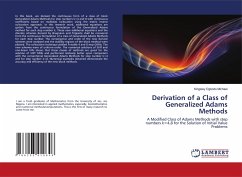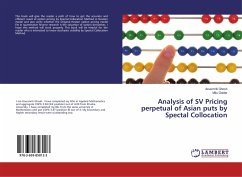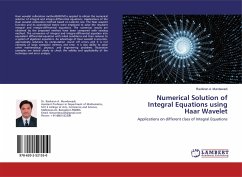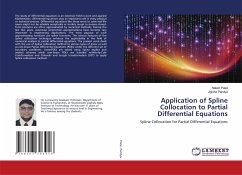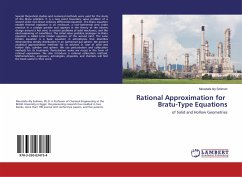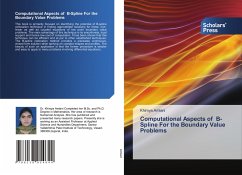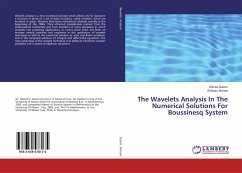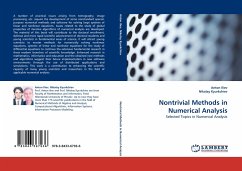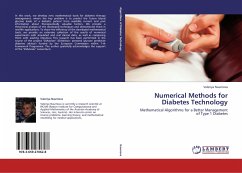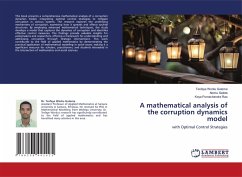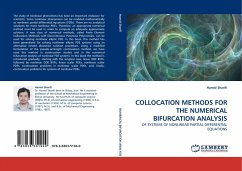
COLLOCATION METHODS FOR THE NUMERICAL BIFURCATION ANALYSIS
OF SYSTEMS OF NONLINEAR PARTIAL DIFFERENTIAL EQUATIONS
Versandkostenfrei!
Versandfertig in 6-10 Tagen
52,99 €
inkl. MwSt.

PAYBACK Punkte
26 °P sammeln!
The study of nonlinear phenomena has been an important endeavor for scientists. Some nonlinear phenomena can be modeled mathematically as nonlinear partial differential equations (PDEs). There are no analytical solutions for most nonlinear PDEs. Therefore, an appropriate numerical method must be used in order to compute an adequate approximate solution. A new class of numerical methods, called Finite Element Collocation Methods with Discontinuous Piecewise Polynomials, can be used for solving nonlinear elliptic PDE. In this book, this method has been generalized for solving nonlinear elliptic ...
The study of nonlinear phenomena has been an important endeavor for scientists. Some nonlinear phenomena can be modeled mathematically as nonlinear partial differential equations (PDEs). There are no analytical solutions for most nonlinear PDEs. Therefore, an appropriate numerical method must be used in order to compute an adequate approximate solution. A new class of numerical methods, called Finite Element Collocation Methods with Discontinuous Piecewise Polynomials, can be used for solving nonlinear elliptic PDE. In this book, this method has been generalized for solving nonlinear elliptic PDE systems using an alternative nested dissection solution procedure. Using a modified formulation of the pseudo-arclength continuation method, we have used this method in continuation studies and in the numerical bifurcation analysis of nonlinear PDE systems. In this book the method is introduced gradually, starting with the simplest case, linear ODE BVPs, followed by nonlinear ODE BVPs, linear scalar PDEs, nonlinear scalar PDEs, continuation problems in nonlinear scalar PDEs, and, finally, continuation problems for systems of nonlinear PDEs.



